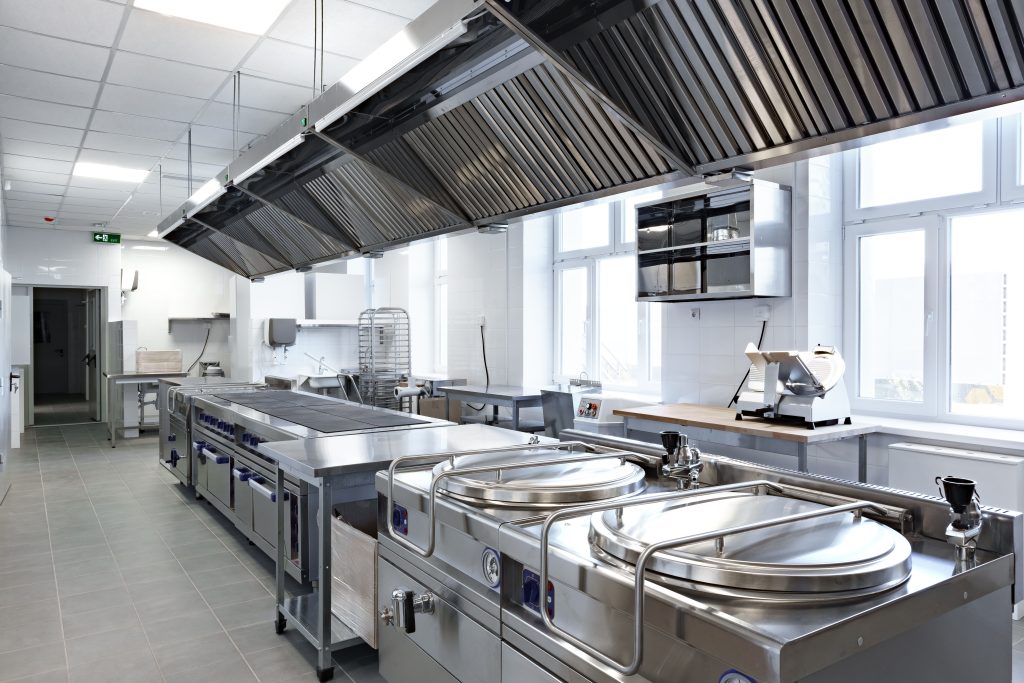
Restaurant hood systems play a crucial role in maintaining kitchen safety and cleanliness. These systems remove grease, smoke, and cooking vapors, protecting both staff and customers while ensuring compliance with health regulations.
Many restaurant owners consider cleaning their hood systems themselves to save money. Professional hood cleaning services are strongly recommended over DIY attempts due to safety risks, compliance requirements, and the specialized knowledge needed to properly clean these complex systems.
The decision between DIY and professional hood cleaning impacts your kitchen’s safety, insurance coverage, and legal compliance. Professional cleaners use specialized equipment and cleaning agents while following strict safety protocols that most restaurant owners cannot replicate.
Key Takeaways
- Regular hood system cleaning prevents fires and maintains proper kitchen ventilation
- Professional cleaners have specialized equipment and expertise to ensure thorough cleaning
- DIY cleaning risks safety violations and insurance complications
Understanding Restaurant Hood System Cleaning
Restaurant hood systems require specialized cleaning to maintain safety standards and protect against fire hazards. Professional maintenance ensures proper ventilation, regulatory compliance, and optimal kitchen operations.
What Is a Hood System?
A hood system consists of several vital components that work together to remove smoke, heat, grease, and cooking byproducts from commercial kitchens.
The main components include:
- Exhaust hood canopy above cooking equipment
- Removable grease filters or baffles
- Ductwork connecting to building exterior
- Exhaust fan on roof or exterior wall
The system creates negative air pressure to pull contaminants up and away from cooking surfaces. This design prevents grease and smoke from spreading throughout the kitchen.
Key Functions of a Clean Hood System
A properly maintained hood system performs several critical functions for kitchen safety and operation.
Clean hood systems effectively:
- Remove airborne grease particles
- Exhaust smoke and cooking fumes
- Maintain proper air temperature
- Prevent grease accumulation in ducts
Regular cleaning keeps the system operating at peak efficiency. Grease buildup reduces airflow and creates dangerous fire risks.
Legal Requirements and Safety Standards
The National Fire Protection Association (NFPA) establishes specific cleaning frequency requirements based on cooking volume.
Required cleaning schedules:
- Monthly: High-volume operations (24/7 cooking)
- Quarterly: Moderate-volume restaurants
- Semi-annually: Low-volume facilities
Local health departments enforce additional regulations. Fire marshals conduct inspections to verify compliance with safety codes.
Insurance policies often require documentation of professional hood cleaning. Non-compliance can void coverage and result in fines or closure.
Can I Clean My Restaurant Hood System Myself? (Pros and Cons)
Restaurant owners face important decisions about maintaining their kitchen hood systems, weighing cost savings against safety requirements and effectiveness. The choice between DIY cleaning and professional services impacts compliance, risk management, and operational efficiency.
Potential Benefits of DIY Hood Cleaning
DIY hood cleaning offers immediate cost savings on service fees and labor expenses. Many basic surface-level cleaning tasks can be performed during off-hours without scheduling external contractors.
Restaurant staff can address visible grease buildup and surface contamination as part of regular kitchen maintenance routines.
Quick spot cleaning allows for more frequent maintenance of accessible hood components, potentially extending time between deep cleanings.
Risks and Challenges of Self-Cleaning
Inadequate cleaning techniques may leave hazardous grease deposits in hard-to-reach areas of the exhaust system. This creates serious fire risks.
Staff typically lack specialized equipment needed to properly clean entire duct systems and roof-level components.
DIY cleaning could void equipment warranties or insurance coverage if not performed to code requirements.
Improper chemical use or cleaning methods might damage expensive hood system components.
Professional vs. DIY Services: A Comparison
Professional Services
- Certified technicians with proper training
- Industrial-grade cleaning equipment
- Complete system cleaning from hood to roof
- Documentation for insurance/inspection purposes
- Warranty protection
DIY Approach
- Lower immediate costs
- Flexible scheduling
- Limited to accessible areas
- No certification documentation
- Potential compliance issues
Role of Hood Safe LLC in Ensuring Safe Cleaning
Hood Safe LLC provides comprehensive cleaning services that meet all fire safety codes and insurance requirements. Their technicians use specialized equipment to access and clean the entire exhaust system.
The company maintains detailed service records for compliance documentation and warranty protection.
Emergency service options accommodate unexpected cleaning needs without disrupting normal business operations.
Regular maintenance programs help prevent grease accumulation while extending equipment life spans.
